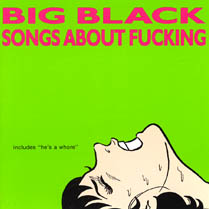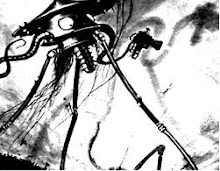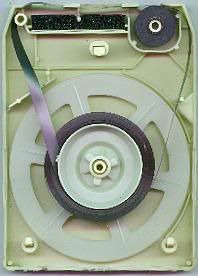I was looking around for Boredoms' lyrics this morning and I came across this link in the Boredoms Soul Discharge wiki for Pitchfork's Top 100 Albums of the 1980s. Scanning though, there are a number of my favorite albums represented here. By the way, Soul Discharge comes in at 89:
Boredoms' first full-length gave adventurous listeners something disturbing and more than a little stupid to chew on, but Soul Discharge was arguably their greatest early example of their thrilling widescreen outbursts. They played Sabbath riffs over ramshackle, caveman Japanese Court beats; they managed to mangle even the most rudimentary garage pound, creating a soundtrack for scat-porn toons and destroying cats; and, of course, they managed to provide a lifetime of jams at a fraction of the sanity.

This is one of my favorite records -- "Bubblebop Shot" is simply awesome. Strange, fast, punk, noise, and off-the-wall crazy, this song will leave a weird feeling inside your ears.
At top 100 spot is Minor Threat's
Out of Step EP. A great record; however, I still like their first 7" EP,
Minor Threat, better. Eight songs of punch-you-in-the-face awesomeness, clocking in at just over nine minutes. The
Out of Step EP has a different production sound than their early records, which sound more raw.
At number 54 is Big Black's
Songs About Fucking. One of the records that started me down the road of noisy rock, this is one that I'll still put on every once in awhile. Though I think that vocalist/guitarist Steve Albini's other project from the '80s, Rapeman, was better, especially the
Budd EP.

Mission of Burma's
Signals, Calls, & Marches comes in at 53. This is record that I've been trying to get a copy of for quite a while. Everyone tells me that I'd really like it...
Hüsker Dü's
Zen Arcade gets the number 32 spot on the list. I didn't really like this record much the first time I heard it; however, letting it sit for a while and coming back put the record in a new perspective.
Zen Arcade is good, but
Land Speed Record is by far my favorite Hüsker Dü album. Despite it being live, I think this record captures the intensity and rawness of the band much better than any of their studio albums. And "Data Control" is just plain awesome.
Coming in at number 25 we have Black Flag's
Damaged. While I generally dislike Henry Rollins' vocals (Keith Morrison's vocals for the
Nervous Breakdown EP captured what I feel is the band's signature sound; the title track is one of those songs that you can listen to over and over again),
for
Damaged they work surprisingly well.

That's about it for some of my favorite records making the list -- there are other bands on the list I like; however, Pitchfork chose records that aren't really my favorites. Of all the Sonic Youth that made the list, Pitchfork left off
Bad Moon Rising. There's also a lot of Pixies records on the list; while I used to like that band much more when I was younger, I haven't listened to them in years. Only a few songs by them can be recalled from my memory. Other bands on the list that I've been meaning to listen to more of are The Fall, The Jesus & Mary Chain, Public Image Ltd., and Minutemen. PiL's
First Edition is amazing -- "Theme" is a prefect record opener, and Lydon's lyrics for "Religion" (I & II) are a penetrating stab against that social malignancy akin to the Crass song "
Asylum." But I still need to check out PiL's
Metal Box, or
Second Edition as it is also known.



















